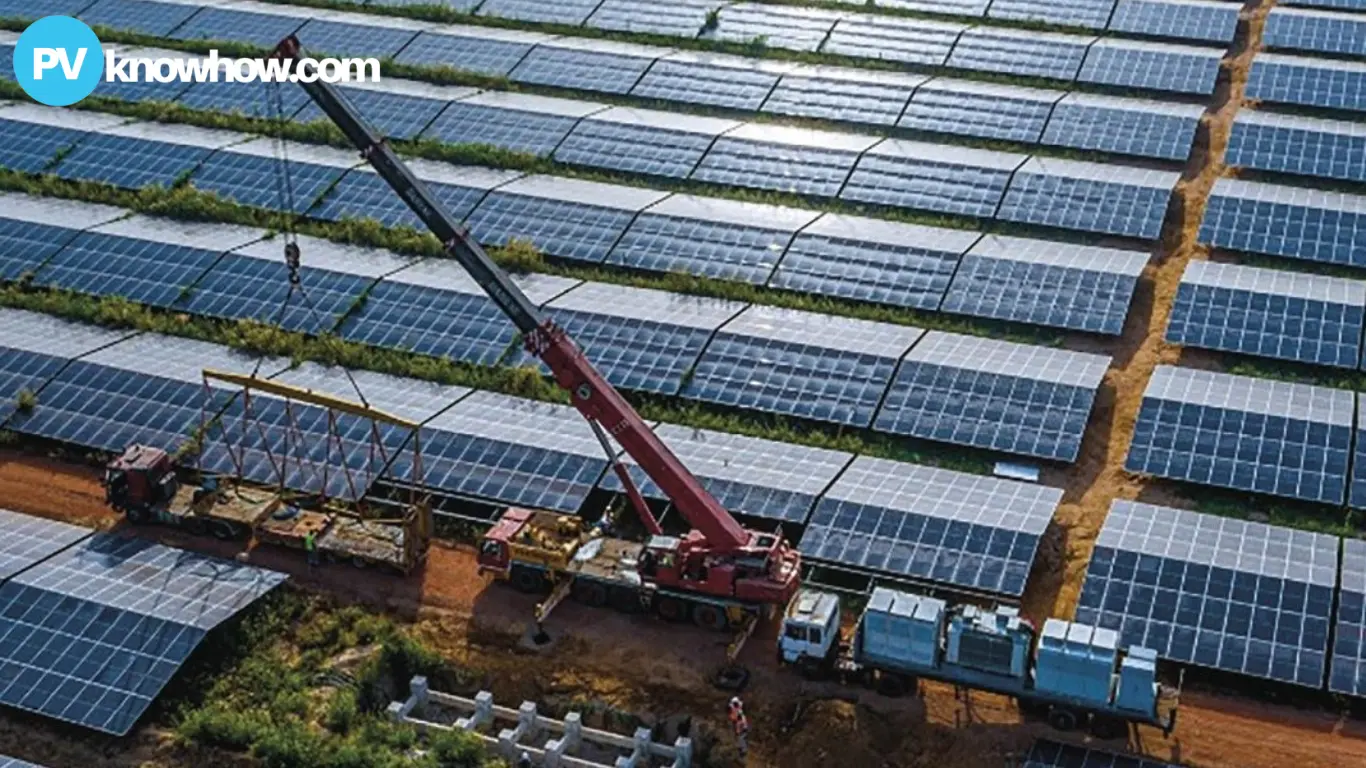Mali and Russia have begun construction on West Africa’s largest solar power plant, designed to address severe electricity shortages. The 200-megawatt plant in Sanankoroba will span 314 hectares and is expected to significantly improve Mali’s electricity supply.
Africa's Largest Solar Power Plant
Mali and Russia have officially launched the construction of the largest solar power plant in West Africa, announced Malian Energy Minister Bintou Camara on national television Friday. This ambitious project aims to address Mali's severe electricity supply issues, where only half of the population currently has access to reliable electricity.
The new solar power plant which is expected to be the largest in both Mali and the surrounding subregion, will significantly mitigate the ongoing electricity shortages. The 200-megawatt solar plant will span 314 hectares in Sanankoroba, a town in southwestern Mali.

Images: Collected
Grigory Nazarov, director of NovaWind - the Russian firm overseeing the construction - revealed that the plant is projected to enhance Mali's electricity production by 10%. NovaWind is a subsidiary of Rosatom, Russia's state nuclear energy corporation. The total cost of the project is estimated at over 200 million euros, or approximately 217 million dollars. Nazarov indicated that the construction is expected to take one year to complete.
Cutting Energy Costs in Mali
This new solar power plant is designed for stable operation for 20 years. After a decade, it will be fully managed by the Malian Ministry of Energy; ensuring local control over the infrastructure. Nazarov emphasized that the initial benefits of the plant will be visible within four months of the start of construction.
Mali’s electricity production is currently 70% dependent on thermal energy, which is costly and has strained the financial stability of the national electricity provider – Énergie du Mali. Finance Minister Alousseni Sanou highlighted these issues when the agreement with NovaWind was signed earlier this year. The national energy company is also grappling with a debt exceeding 330 million dollars, which has hindered its ability to supply power to Bamako and other regions.
The new solar power plant represents a significant step in diversifying Mali's energy mix and reducing its reliance on fossil fuels. The Malian government views this project as crucial for easing the country's energy crisis. The introduction of solar energy is seen as a sustainable solution to the high costs associated with thermal power generation.
In addition to this major solar project, Mali is planning to start construction on two other solar power plants near Bamako. These projects — set to commence on May 28 and June 1 — will be developed by Chinese and Emirati companies. The combined efforts are expected to further alleviate the electricity shortages affecting the country.
Power Plants: Strengthening Bond Between Russia and Mali
Russia's involvement in Mali has been marked by its growing influence through the Wagner Group — a private military company that has operated in the country since the 2010s. This collaboration aligns with broader Russian interests in resource-rich Africa. In a March phone call, Russian President Vladimir Putin and Malian junta leader Colonel Assimi Goita discussed strengthening cooperation in various sectors including energy, agriculture, and mining.
The Malian presidency has endorsed the solar power project as a pivotal move towards reducing the nation's dependence on fossil fuels and advancing its energy infrastructure. The project is anticipated to have a substantial impact on the country's ability to meet its electricity needs and support economic stability.
Overall, the construction of the solar power plant marks a significant development in Mali’s energy sector. It reflects both the strategic partnership between Mali and Russia and the country's commitment to addressing its energy challenges through renewable sources.
